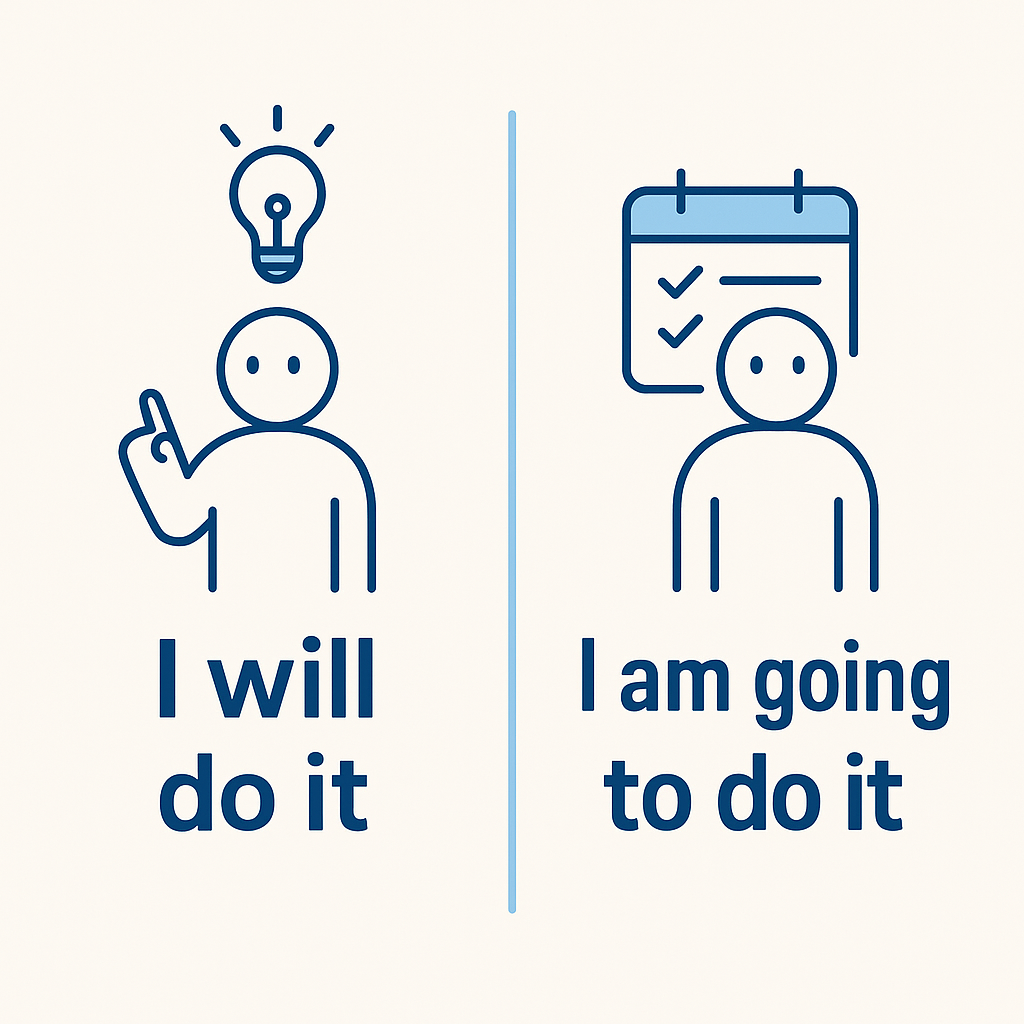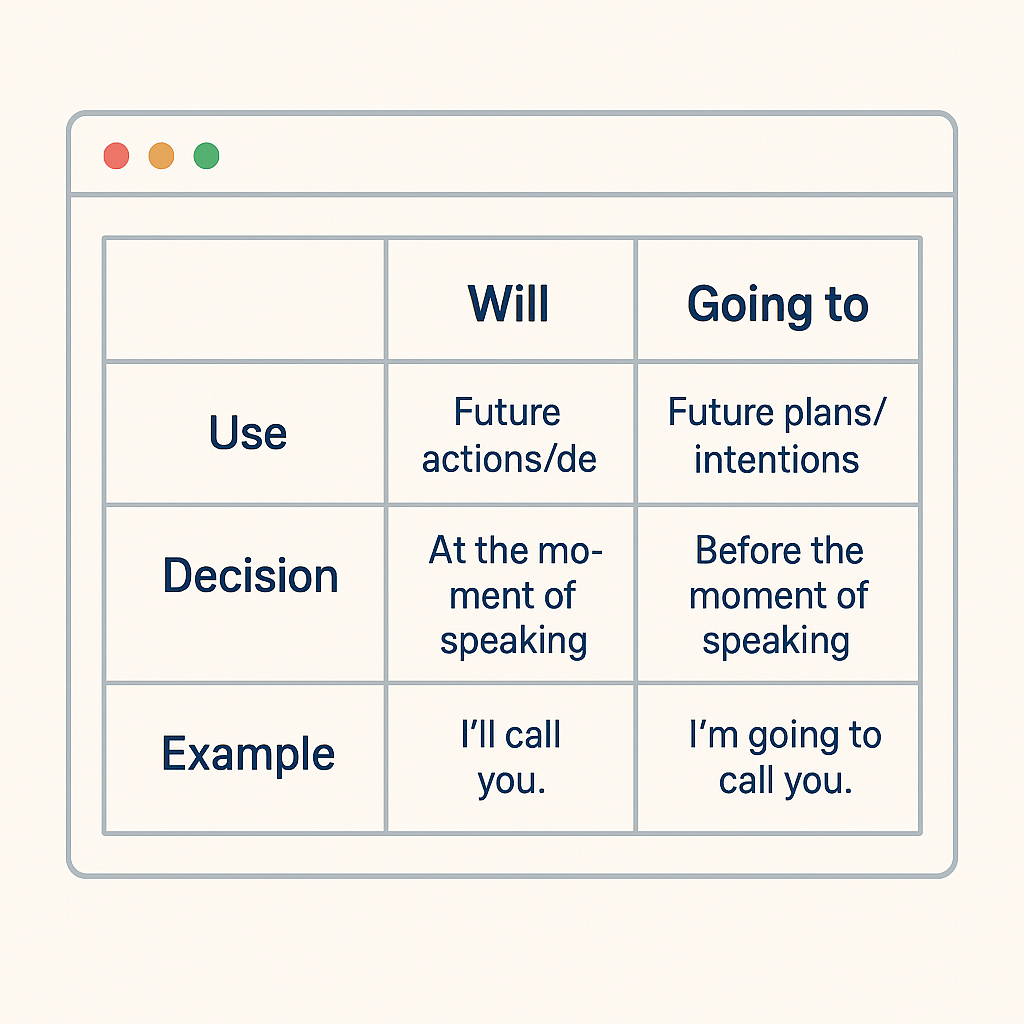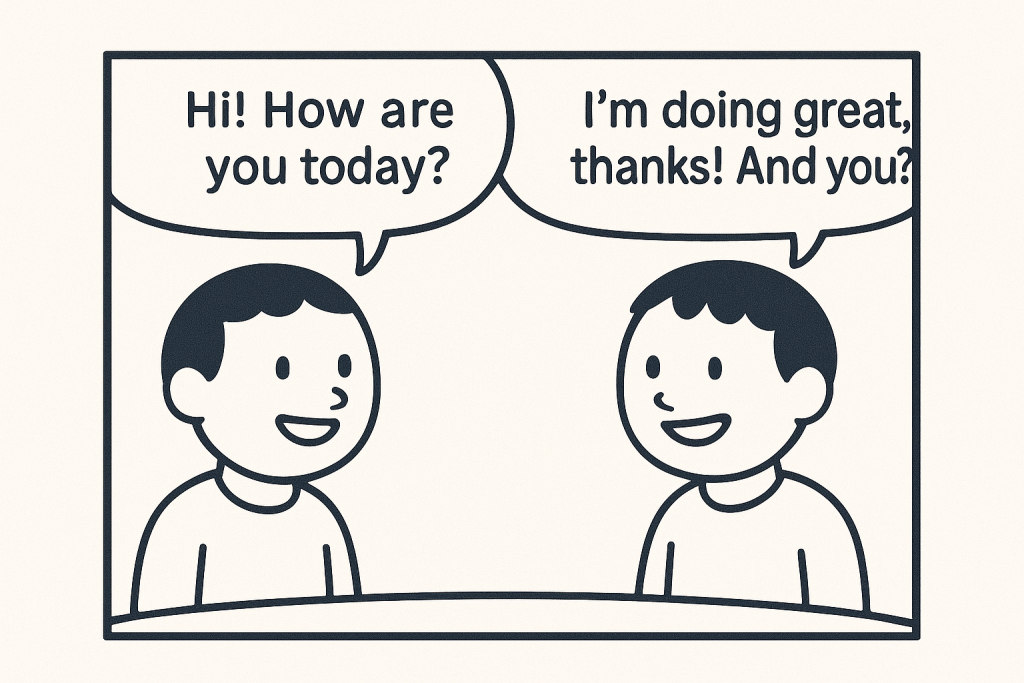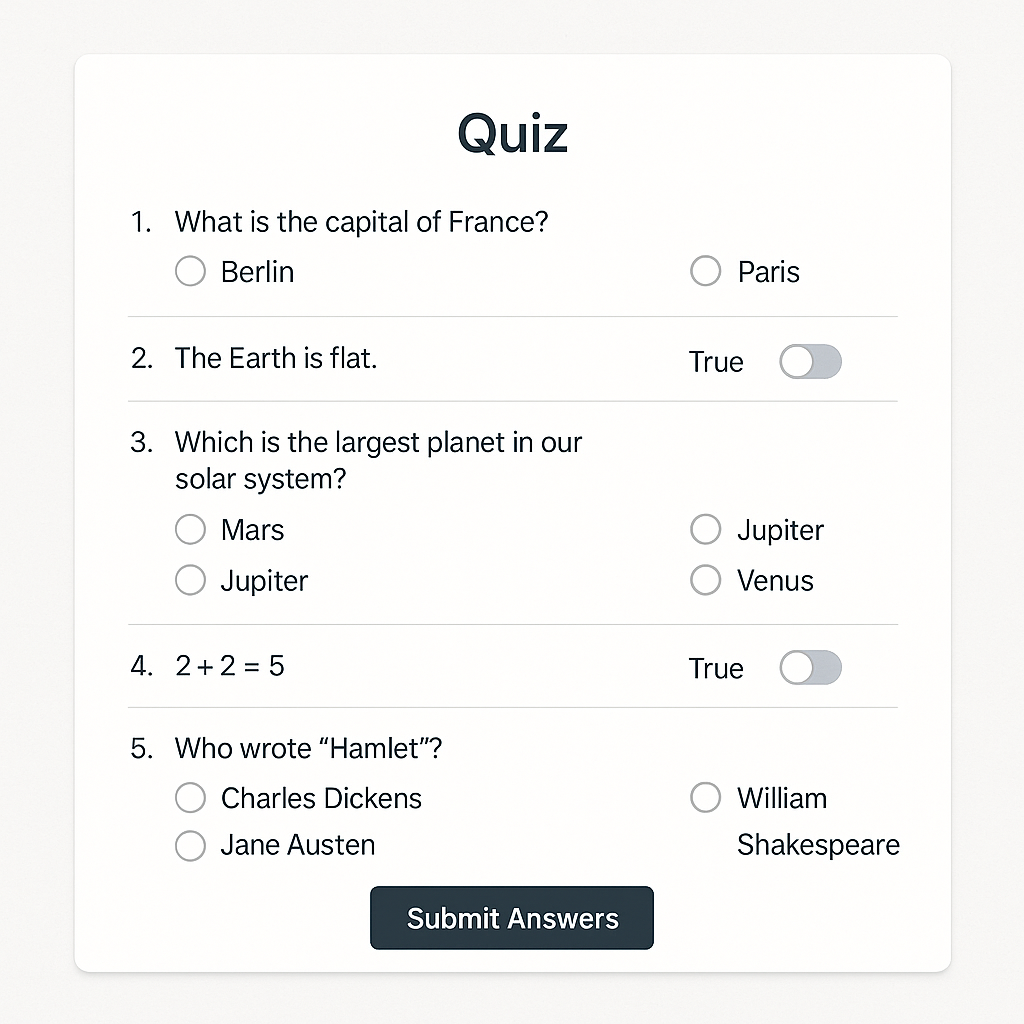Introduction: What Is the Simple Future Tense and Why Should You Care?

Look, the future is confusing enough without grammar making it worse. But if you want to talk about what you plan to do, think might happen, or swear you’ll never do again (spoiler: you will), the simple future tense is your go-to.
It’s commonly formed using will or going to, which are totally the same… until they’re not. Welcome to the chaos.
This blog will:
- Break down the simple future tense like it owes us money,
- Show you when to use “will” vs. “going to” without crying,
- Give real-life examples (yes, even ones involving pizza and awkward work meetings),
- Include a handy comparison chart,
- And test if you were paying attention with a mini quiz at the end.
Let’s take this grammar thing one breakdown at a time.
What Is the Simple Future Tense (and Why You Already Use It Wrong)
Definition: The simple future tense describes actions or events that haven’t happened yet but are expected or planned to happen in the future.
Before diving deeper, you might also want to check out our in-depth overview of the simple verb tense to see how future tense fits into the broader tense universe.
For those who love a textbook vibe, you can cross-reference this with the Cambridge Dictionary’s take on future tenses — but only if you’re emotionally ready.
Structure:
- Will + base verb
- Be going to + base verb
How to Use “Will” vs. “Going To” Without Looking Confused
- Predictions: “It will rain tomorrow.”
- Spontaneous decisions: “I think I’ll call her now.”
- Plans/intentions: “We’re going to visit my grandmother.”
- Promises or offers: “I’ll help you with that.”
Examples of Simple Future Tense You’ll Actually Use
- I will study for the exam. (lol, sure you will)
- She’s going to bake a cake.
- They will probably be late. Again.
Will vs. Going To: What’s the Difference?

Time for the main event: the showdown between will and going to. They both talk about the future, but they’re not clones.
For a bit more nuance beyond the basics, our advanced grammar tips for non-native speakers might also help clear the fog.
If you’re more of a dictionary devotee, the Oxford Learner’s Dictionary explains it without the jokes. But let’s be honest — jokes make grammar survivable.
Use “Will” When:
- You decide something at the moment of speaking:
- “Oh no! I forgot. I will send the email now.”
- Making predictions without evidence:
- “I think it will snow tonight.”
- Promises or offers:
- “I will always love you” — thanks, Whitney.
Use “Going To” When:
- You made the decision before speaking:
- “I’m going to start a new course next week.”
- You have evidence for a prediction:
- “Look at those clouds. It’s going to rain.”
Real-Life Dialogue Example:
Scene: Two friends planning their weekend
Alex: What should we do on Saturday?
Jordan: I don’t know… Oh! I will book the bowling alley.
Alex: Nice. I’m going to invite Sarah too.
See? Alex had that plan in mind. Jordan made the decision on the spot. Grammar drama.
Comparison Table:
| Context | Use “Will” | Use “Going To” |
|---|---|---|
| Spontaneous decision | I will answer the phone. | |
| Prior plan/intention | I’m going to visit my uncle. | |
| Prediction (no evidence) | I will be famous one day. | |
| Prediction (with evidence) | Look at the sky. It’s going to rain. | |
| Promise/Offer | I will carry your bag. |
Common Mistakes Learners Make with the Simple Future Tense
Want to refresh your sentence-building fundamentals before going full tense-ninja? Check out our guide to understanding simple sentences.

Example Sentences:
- He will join us for dinner.
- We’re going to see that new movie tonight.
- I think she will like the gift.
- They’re going to move next month.
- I will text you the details.
- I’m going to take the test again.
- Will you be at the party?
Tips for Sounding Less Weird:
- In casual speech, contractions are your friend: “I’ll”, “she’ll”, “won’t”.
- Use “going to” in informal contexts and “will” when you’re being polite or formal.
- Try not to overthink it. Most native speakers mix them up, and yet here we are, still communicating.
Mini Quiz: Are You a Future Tense Master or Just Guessing?

Choose the correct option or decide if the statement is true or false.
1. Look at that dog! It (will / is going to) jump into the pool.
2. I think they (will / are going to) win the game.
3. We (will / are going to) have lunch at noon. It’s already planned.
4. True or False: “Will” is used for decisions made ahead of time.
5. True or False: “Going to” can be used for promises.
Answer Key:
- is going to
- will
- are going to
- False
- False
Conclusion: Why This Tense Actually Matters
Mastering the simple future tense isn’t just for impressing your grammar teacher. It helps you speak clearly, make plans, and avoid sounding like you live in the eternal present.
Understanding the difference between will and going to will level up your everyday conversations. Next time you say what you’re doing this weekend, try not to sound like a confused robot.
✅ Your Next Steps:
- Take the mini test (again, if you bombed it).
- Leave a comment with your best or worst future tense sentence.
- Brush up on conditional sentence rules to see how future thinking blends with other grammar structures.
- Explore more on the Fixy Grammar Blog and check out the grammar category for more goodies.
FAQ (Frequently Asked Fumbles)
Q1: What is the definition of the simple future tense?
A: It’s used to talk about things that haven’t happened yet but probably will. Think of it like future gossip: “It will rain,” “She is going to quit.” You’re just predicting life.
Q2: What’s the difference between “will” and “going to”?
A: “Will” is for things you decide on the spot or when you’re feeling dramatic. “Going to” is for plans and obvious predictions. One is improv, the other is premeditated.
Q3: Can I use both “will” and “going to” in the same sentence?
A: Yes, but why? Are you trying to confuse someone? Technically yes, stylistically… please don’t.
Q4: What are some common mistakes with this tense?
A: Mixing “will” and “going to” randomly, using it where present continuous works better, and my personal favorite: forgetting tense exists and just speaking in memes.
Q5: Is the simple future tense used in formal writing?
A: It can be, but with caution. Formal writing prefers “will” over “gonna”. Save “gonna” for TikTok captions and emotionally unstable texts.
